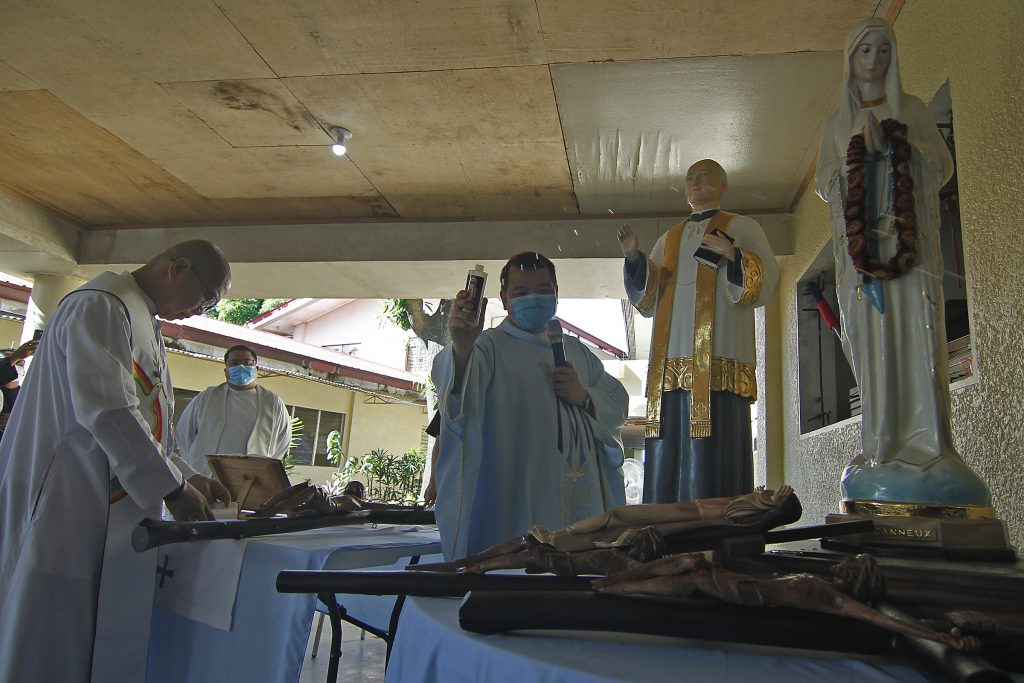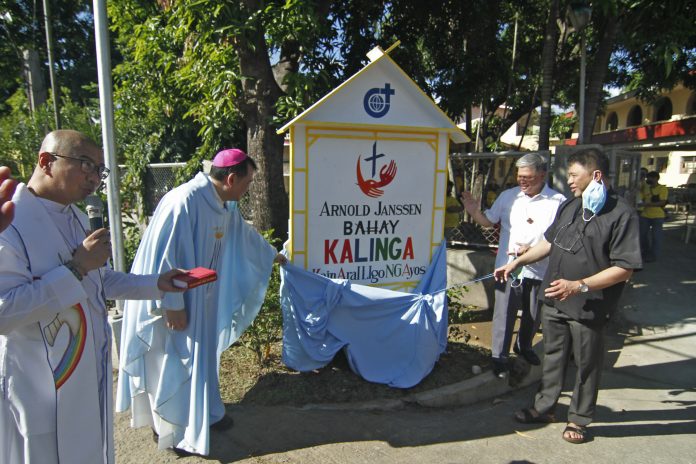A church-based organization in Manila has inaugurated on Thursday, July 16, a facility that will provide shelter for street dwellers in the capital.
The Arnold Janssen Kalinga Foundation has transformed the former German Doctors Hospital in Caloocan City into a “Kalinga House” for the homeless.
Bishop Roberto Gaa of Novaliches led the blessing of the facility that has a capacity of 75 beds, a skills development center, and a facility for an alternative learning system.
In his homily, Bishop Gaa lauded the program that “gives not only shelter but new hope and life” to the homeless who have been “neglected and driven away” by society.
“This is not just a bahay kalinga (caring home)…. We welcome you here but you also welcome us and allow us to live the Gospel,” he said.
The prelate stressed that more than the street dwellers need the Church and the facility for food and shelter, “the Church needs” them to fulfill its mission as a Church of the Poor.
Homeless people who will enter the Bahay Kalinga will have to undergo a three-phase development program before they are allowed to leave the center.
Father Flaviano Villanueva, a Society of the Divine Word priest, told LiCAS.news that the first step for the center is to provide beneficiaries provisions for “a decent shower and healthy meals.”
“We want to recreate and build their self-image. Allow them to clean their bodies and give them back the dignity they lost in the streets,” he said.
The second phase is the Alternative Learning System program for beneficiaries who have not finished basic education.
“We want to help them reclaim their self-respect,” said Villanueva.
Beneficiaries under the ALS program have to stay in Kalinga House for one year to finish the program.
Phase three includes a three-month skills development training program that will prepare them to go back to the outside world.
“Before we send them off, we will make sure that a decent job is already waiting for them,” the priest said.

Father Villanueva started the foundation in 2015 in Manila’s Tondo district where he established the Kalinga Center that offers hot meals and a free shower to street dwellers.
On March 19, one day after the government implemented a total lockdown due to the coronavirus pandemic, authorities dispersed about 100 street dwellers who lined up outside the center.
The foundation collaborated with different Catholic schools and religious congregations in the Archdiocese of Manila to provide temporary sanctuary for the homeless during the lockdown.
“I know that eventually, these people who stayed with us during the lockdown will have to go back to the streets because the schools will soon open,” the priest said.
In May, Father Villanueva started to scout for a location where his foundation can establish a permanent “transformation shelter” for the homeless.
The priest finally found a facility in Bagong Silang village in Caloocan City that is “ideal for a center that will offer hope and new life to those who have been forsaken.”
The Passionists, formally known as the Congregation of the Passion of Jesus Christ, offered Father Villanueva the former hospital.
Father William Pondo of the Passionists said they have been looking for an organization that is willing to use the facility for another purpose after the hospital closed a few years ago.
“It was a long wait but we are happy that the former health facility that saved lives is now reopening to save more lives,” he said.
During the same event, a memorandum of agreement was signed allowing the foundation to use the congregation’s facility for free.
The newly-opened Bahay Kalinga is now home for about 68 homeless people, including nine elderly.
Most of them were those who were temporarily housed in different Catholic schools during the pandemic lockdown.









